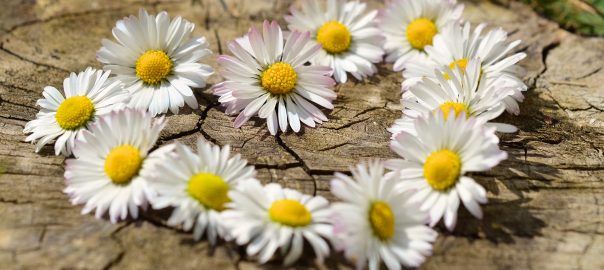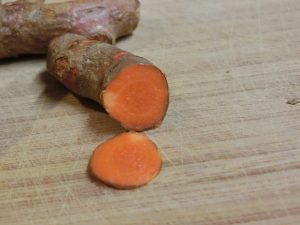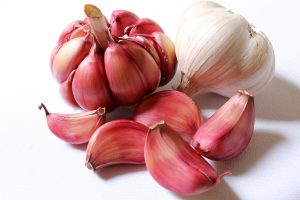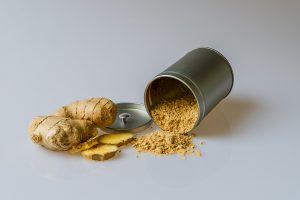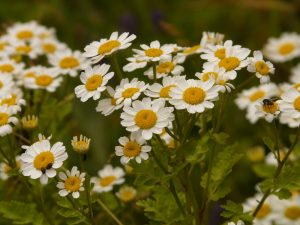In the year 2007, close to $1 billion was spent by 4.2 million American adults on anti-clotting prescriptions: a/k/a blood thinners. These drugs were purchased to treat cardiovascular disease, cancer or diabetes, and as support for post-surgical patients. Many more people are prescribed aspirin therapy, taking one per day to reduce heart disease and stroke. With the preponderance of cardiovascular diseases, insterest in herbal blood thinners is coming to the forefront.
Are Blood Thinning Drugs the Best Bet?
But pharmaceutical and over the counter blood thinners are also known for many adverse side effects. The “less serious” reactions include bleeding from the gums, inability to eat, and fever. Immediate medical attention is urged if patients experience severe bleeding, brown urine, excruciating headaches, dizziness and weakness, to name a few.
In this area of health and medicine, herbal supplements or other holistic methods of treating the disease are often highly discouraged. This is actually sound advice to anyone taking their prescribed blood thinners. Because many foods, herbs, supplements and lifestyle choices do work to help thin the blood. But if they are working, then they are increasing the effectiveness or otherwise altering the actions of the pharmaceutical. And this is bad; this can lead to what no one wants – heavy, uncontrollable bleeding.
Instead of trying to help effect positive health change by suggesting healthy foods and supplements, and because of the danger of mixing the drugs with healthy alternatives, the medical model as a whole has chosen to recommend that people AVOID these healthy measures. Certainly a wise path for THEM. But what about those 4.2 million Americans whose risk of blood clotting has made them dependent on these drugs? Are the harmful side effects and risks worth it?
How Safe are Herbal Blood Thinners?
And what of the risks of herbal supplements like Turmeric? This herb was shown in lab studies to prevent plaque build-up in the arteries. If we know they have these effects on animals, why have human tests not been done? Wouldn’t it be important to know if nutritious spices work just as well with less side effects?
Caution is always recommended by doctors to not take herbal blood thinners because they can magnify the effects of the prescription blood thinners. But I would like to see more studies on how herbal blood thinners can work on their own, without the drugs.
I am in no way recommending that anyone start supplementing their blood thinning medication by using the herbs below. That would be stupid. By taking more than one blood thinner, your risk factors are skyrocketing.
But on the other hand, I reject the model that eliminates these healthful and long used herbs for something that causes dependence and harm.
Five Herbal Blood Thinners
Below, I talk about five herbal blood thinners that are naturally anti-clotting. I can tell you what their medicinal properties are and how they work. But to embark on a pharmaceutical-quitting and herbs-embracing regimen, seek the counsel of both your doctor and a naturopath.
Several of these herbs may already be a part of your regular diet. Others may grace a few of your favorite recipes. Please be aware of the difference between dosing medicinally and cooking occasionally with herbs. For use in medical ailments, a certain dosage would need to be taken daily. With cooking, small amounts used here and there do not constitute a “supplement.” These herbal blood thinners, however, make a great and nutritional addition to your diet. When used sparingly, they should not be discounted because you are worried about ‘double dosing.’
Turmeric
A definite magnifier of anti-clotting pharmaceuticals, and a common spice, Turmeric is both anti-inflammatory and an anti-coagulant. Animal research indicates that this herb may prevent clots from building and helps to slow artery plaque build-up. People who are pregnant, have a blood sugar disorder, have stomach acid or who will be having surgery in two weeks or less, should not be dosing with Turmeric.
Garlic
Probably the most common natural cardiovascular supplement, garlic has long been used to treat heart disease. It’s blood thinning, antioxidant, anti-inflammatory and anti-bacterial actions all contribute to its heart healthy benefits. In several studies, garlic was shown to slow the aggregation of platelets, which happens in the beginning of clot formation. Because it can increase bleeding for those on meds, utmost caution must be taken.
Ginger
With so many uses that have spanned millennia, it’s not surprising that ginger is also an herb used for cardiovascular health. You might associate this plant with treating nausea, motion sickness or morning sickness, but ginger has been studied for its effectiveness in lowering cholesterol, improving blood sugar control and helping to prevent clotting.
Feverfew
This is one of the few herbal medicines that is strongly advocated for even in the medical community. Researchers have concluded that feverfew offers substantial analgesic (aspirin-like), anti-inflammatory, fever reducing and spasm contolling actions. Today it is commonly used for migraines, severe menstrual cramps and arthritis. Feverfew may also be used for its blood thinning properties. If a person decides to stop taking feverfew as a supplement, it’s important not to stop all at once, but to wean off from this herb. Otherwise, it may cause rebound headaches, joint pain and other symptoms.
Red Clover
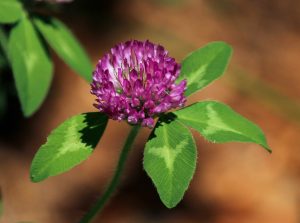
That purplish weedy looking flower gracing your lawn contains isoflavones. These estrogen-like compounds have shown promising results in research studying their benefits to the heart. A blood purifier and circulatory tonic, red clover is also rich in many minerals. It’s been known to improve blood flow and increase the strength and flexibility of arteries.
As with all blood thinning herbs, foods, supplements and pharmaceuticals, seek the advice of your healthcare practitioner before making any changes to your blood thinning medicines. I have omitted any dosing information and recommend that you ask a person you trust who knows the most about your health.
Resources:
http://umm.edu/health/medical/altmed/herb/turmeric
http://www.naturalnews.com/035465_blood_thinners_alternatives_Coumadin.html
University of Maryland Medical Center.
http://archive.ahrq.gov/news/newsletters/research-activities/jan10/0110RA1.html
http://www.ncbi.nlm.nih.gov/pmc/articles/PMC3210009/
